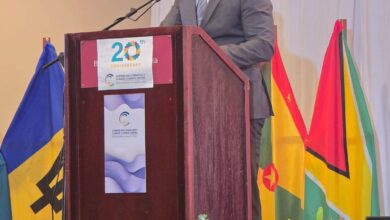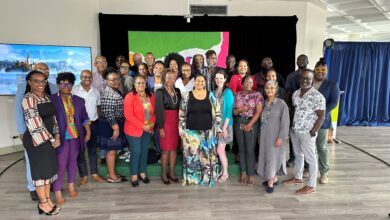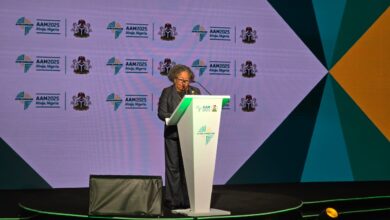Since 1985, Caribbean countries have observed September 30 as Caribbean Youth Day. On those occasions the Region has organised a range of activities and programmes to mark the occasion and to promote the Region’s Youth. These activities have involved schools, Youth-related organisations and the general public, and have been designed to showcase the attributes and achievements of the Region’s young people and to highlight the critical issues embodied in specially selected themes.
I am aware that in keeping with that tradition Member States have this year planned a noteworthy array of programmes and activities in commemoration of Caribbean Youth Day 1999. On behalf of the Caribbean Community, I wish to take this opportunity to extend warm greetings to young men and women throughout the Community and to add my wishes for the successful execution of the commemorative programmes planned at the national and regional levels.
To the society at large I would ask that as we go about our respective duties today in particular, we reserve some time to reflect on the special challenges that confront young Caribbean men and women at the dawn of the Twenty-First century. Apart from the traditional challenges such as unemployment, limited economic opportunities, teenage pregnancy and drug abuse, there are new and more deadly ones such as the threat of HIV-AIDS. If the Caribbean is to succeed in harnessing the full contribution of Caribbean youth to nation and region-building, it is incumbent on the Region to design and implement, as a matter of urgency, strategies directed at empowering Caribbean youth to become capable, responsible and productive citizens.
To achieve this objective however, it is equally critical to ensure that young people themselves are given the opportunity to be an integral part of the process of developing, implementing and evaluating these strategies, in partnership with relevant national, regional and international agencies, the private sector, non-governmental agencies and other key providers of youth services and programmes.
There are encouraging signs that such changes are already taking place in the Region at national and regional levels although, I will admit, not at optimal speed.
Some of you may be aware, for example, of ongoing efforts made by Caribbean Heads of Government over the past year to engage the social partners in a process of dialogue and consultation in the setting of an agenda for the Twenty-First century. This has included – for the first time – the participation of a five-member delegation drawn from participants in the 1998 Caribbean Youth Explosion which exchanged views on their vision of the Caribbean in the Twenty-First century with the Conference of CARICOM Heads of Government at a special retreat during the Tenth Inter-Sessional Meeting of the Conference held in Suriname in March 1999.
This Youth Vision was drawn from that articulated by more than 90 delegates who participated in the 1998 Caribbean Youth Explosion, as part of the commemoration of the Twenty-Fifth Anniversary of the establishment of the Caribbean Community and Common Market. The Vision speaks to the characteristics of an ideal society which recognises the rights of Caribbean Youth as equal, active and responsible participants; and calls for, among other things, the provision of:
“institutional infrastructure, along with legal and administrative frameworks, which permit citizens access to resources, employment, education and training and make them fully aware of their rights and responsibilities, as well as (providing) a forum to promote their issues and concerns at the highest policy-making levels”.
The March 1999 Meeting of our Youth with the Conference is historic because Heads of Government, by that encounter, demonstrated clearly that they placed Youth concerns and aspirations squarely on their agenda in order to ensure that those concerns, hopes and dreams inform the political agenda for regional development into the next century. The significance of this action therefore cannot be overstated. This must be seen as another building block in the foundation for positive change, bringing young people one step closer to involvement at the highest policy and decision-making level in the Caribbean Community.
May we, therefore, as parents, teachers, mentors or other adults strive with our Youth – the Next generation of Caribbean Leaders – to secure a viable place for our Region into the next century.
May God bless you all.





